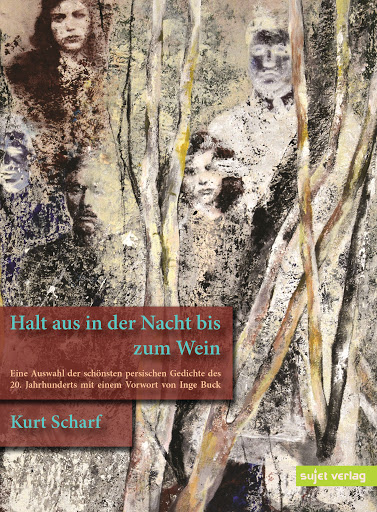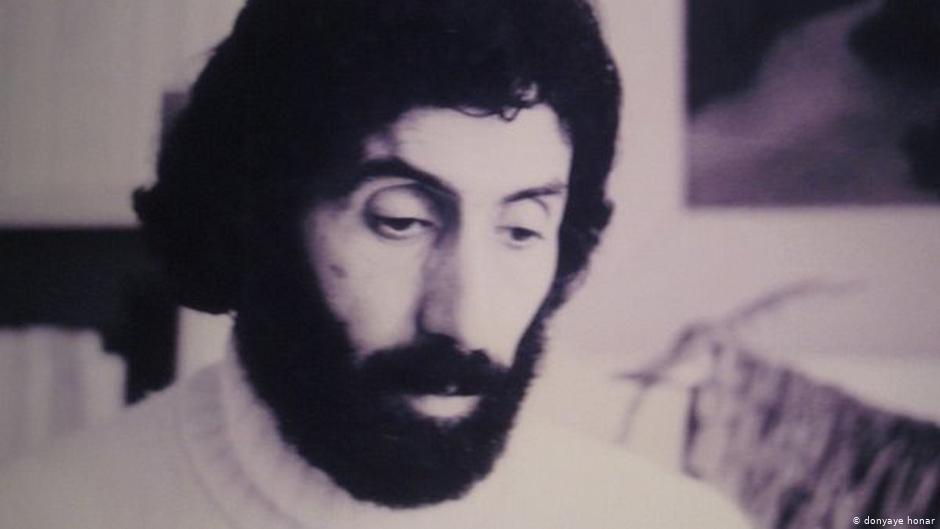A window on modern Iranian poetry

Bringing poetry from the original into another language is never an easy undertaking. And with Persian poetry, rich in images and drawing on a linguistic and metaphorical treasure trove accumulated over more than a thousand years, the task is particularly challenging.
Even if these poems were only written during the last century; how do you translate the sensibilities anchored in Iranian culture, or the allusions to the great classics of Persian literature? Is it possible to do without footnotes? What do you do with antiquated words and daring syntax?
The playful ambiguity of the wine metaphor
In "Halt aus in der Nacht bis zum Wein" ("Endure in the night until the wine") Kurt Scharf, a cultural mediator and literary translator, tackles poems by 32 contemporary Iranian poets. The title of the anthology comes from a verse by a poet from Shiraz, Mansour Oudji, and plays on the playful ambiguity of the wine metaphor in Persian poetry. In Persian, wine can be earthly – intoxicating wine, made from grapes – or a symbol of love, or even of mystical rapture.

Scharf has been making a name for himself since the 1990s as one of the few German translators from Persian, most recently with several novels by the Iranian writer Amir Hassan Cheheltan. Scharf has also brought literature into German from the Latin American varieties of Spanish and Portuguese. However, in comparison to translating the Persian verses, he says: "At the moment I am working on a translation of a Brazilian novel, and finding it a very restorative project."
The poets in this volume, which is published by the Bremen-based Sujet-Verlag, are part of the pre-revolutionary generation, and the pinnacle of their careers came in the two Pahlavi eras. A few have already died, but some still live in the Islamic Republic, while others have been living in exile for many years.
The book is devoted to a movement in Persian poetry which is much less well-known in the West than the great classics by Hafez and Rumi. To provide a little background: the 20th century was an age of innovation and radical literary change for Persian poetry. Pioneers like Nima Yushij (1897-1960) reformed the language of poetry and wove new kinds of metaphors into their poems.
Escaping the corset of classical poetry
But above all, the she'r-e nou movement, with Yushij as its figurehead – the "new poetry" – was an escape from the corset of the classical schemata of rhyme and metre prescribed by a poetic tradition stretching back hundreds of years. In this freer poetry, which rapidly came to the fore, metre and line length could vary within a single poem. Grammar was no longer taken quite so seriously, either. Now, the dominant themes weren’t just mysticism or love, but often political or social criticism.
Although translations of some individual poets do already exist in German, Scharf’s anthology also gives a German readership access for the first time to the works of some lesser-known poets. This alone is a great service, bringing multi-faceted Iranian lyric poetry closer to us.
Scharf takes pains to stay as close as possible to the original in his translations. And in doing so, he pushes the linguistic freedoms that poetry affords to the limits. The style of each poet is still recognisable in the verses – from the simple, meditative language of Sohrab Sepehri to the bold intensity, scandalous at the time, of the poet and pioneer of emancipation Forough Farrokhzad.
Readers who engage with the poets’ imaginative worlds and stylistic quirks, which also transport the German language, will not be troubled by the fact that the language of the translation sometimes appears less poetic, and occasionally even pedestrian. In many poems, however, Scharf has managed to retain the rhymes and thereby convey something of the linguistic beauty of the Persian original. In this melancholic roba'i, or four-liner, for instance – a form characteristic of the work of the poet Mehdi Akhawan Sales: Es kam der Tod und fragte nach der lieben Seele mein. / Er forderte, was sie gewann und was ihr fehlte, ein. / Ich lebte einst den Freuden und gab alles für sie hin; / Und er zog nur den Leib, nur eine leere Hülle ein. (Death came and asked for my dear soul. / He claimed what it had gained and what it lacked. / I once lived for joy and gave everything for it; / And all he seized was the body, the empty husk.)
The voice of the translator comes through
The observant reader will doubtless notice how diligently Scharf has searched for the most fitting expressions in the translation – an endless balancing act, in which ultimately the voice of the translator can also be heard. At the same time, though, the reader is carried along by the translator’s enthusiasm for the legacy of Persian poetry. "Goethe himself, who declared 200 years ago that the hour of world literature had come, gave a place of honour to Persian lyric poetry within that literature," says Kurt Scharf.

Scharf has been working for the Goethe Institut since 1969, in locations in Latin America, Europe and western Asia. He was the deputy director of the Institut in Tehran from 1973 to 1979, before moving to the Brazilian branch until the mid-1980s. He then spent a few years in Berlin, where he headed the "Literature, Society and Science" section at the Haus der Kulturen der Welt. From 1994 to 1999, Scharf was the director of the Goethe Institut in Istanbul, followed by the Lisbon branch until 2005.
In his afterword to the poetry anthology, Scharf gives the reader a revealing impression of the historical climate he experienced in Tehran towards the end of the 1970s. At that time, Scharf got to know some of the Iranian poets in his book personally.
On "Ten Evenings" in October 1977, the writers’ association that had been banned under the last Shah and the Tehran Goethe Institut together put on the largest literary event in Iranian history. For the 66 poets and authors who took part, these evenings became a forum for demonstrating against the restrictions to freedom under the Pahlavi regime.
"In the time before the last Shah fled, the poets were the Maitres-Penseurs of Iran, setting the country’s intellectual climate; and the Iranians’ artistic will was concentrated on poetry in a way we can scarcely imagine. That was a formative experience for me," Scharf says, looking back. With this anthology, he now gives us an impression of the extraordinary role that Persian poetry has played as a melting pot of various schools of thought, and also of the unusual relationship that Iranians still have to their poetry.
Marian Brehmer
© Qantara.de 2020
Translated from the German by Ruth Martin
